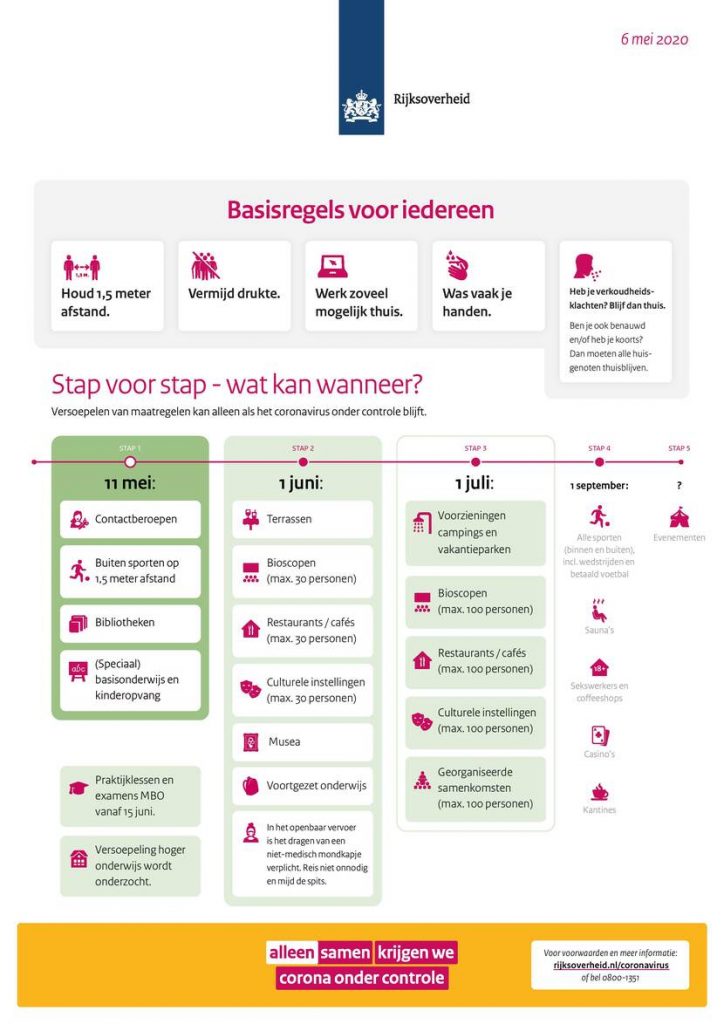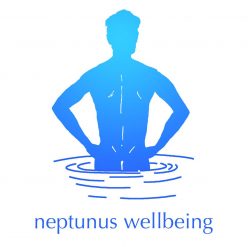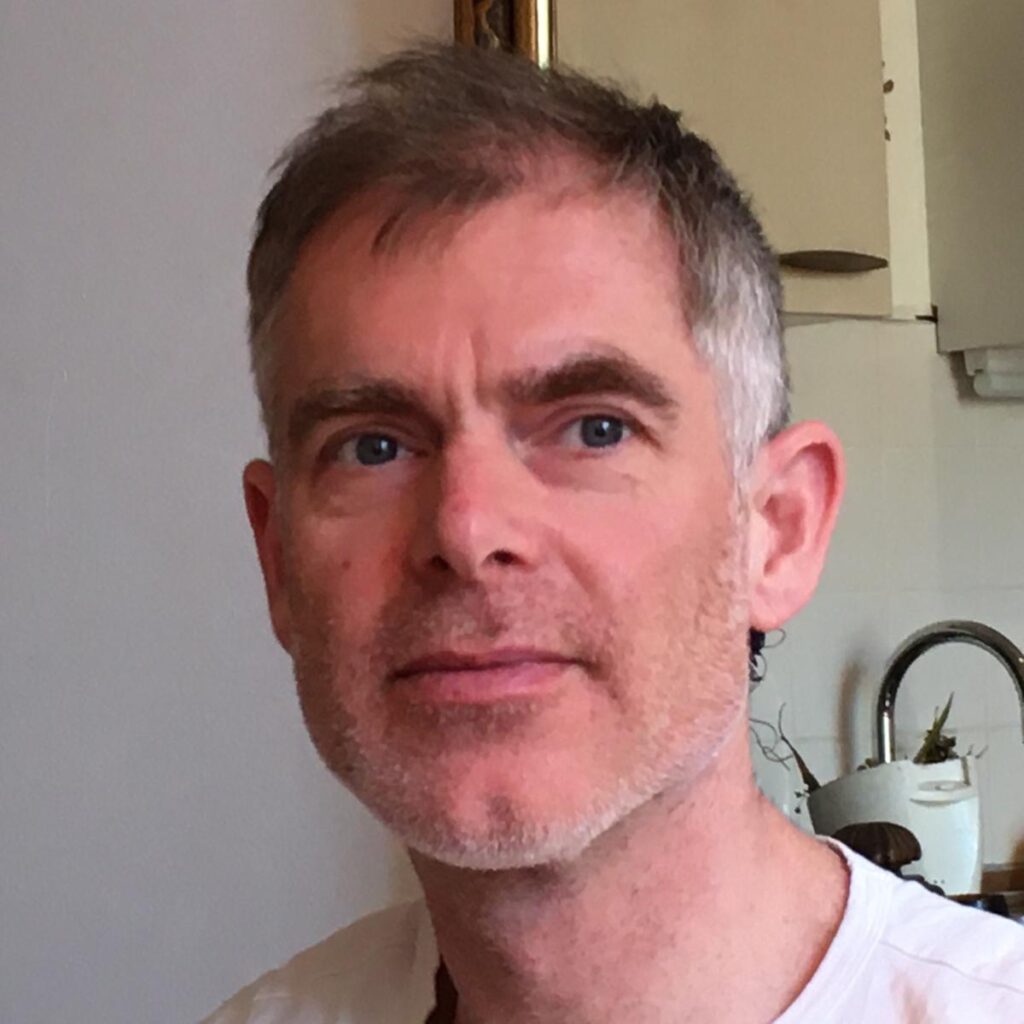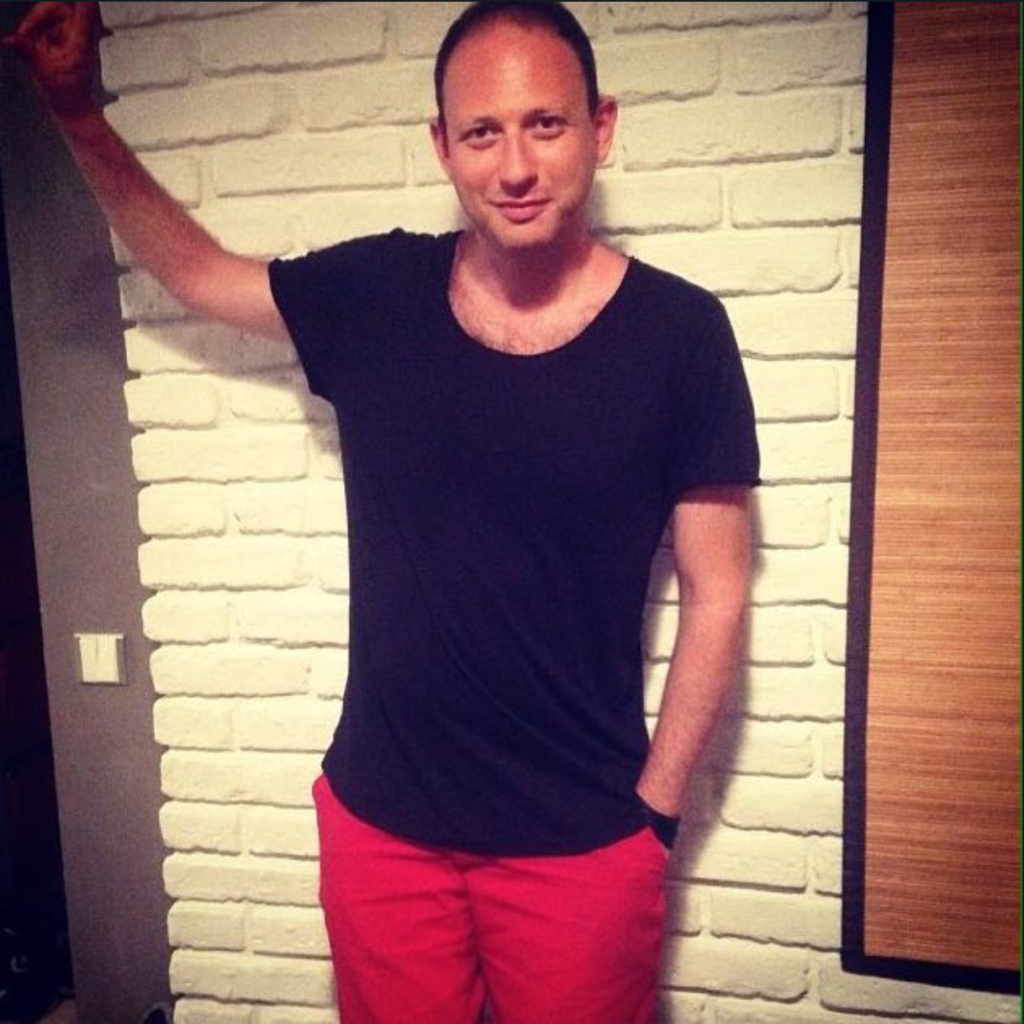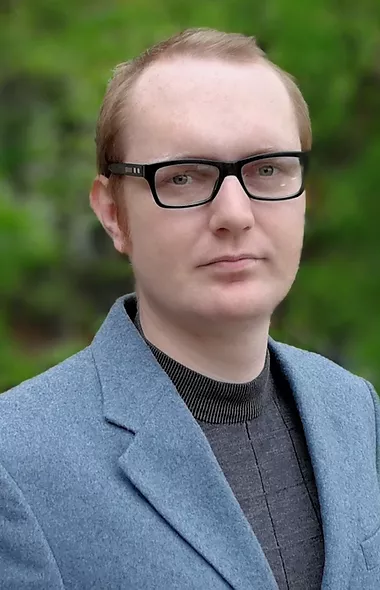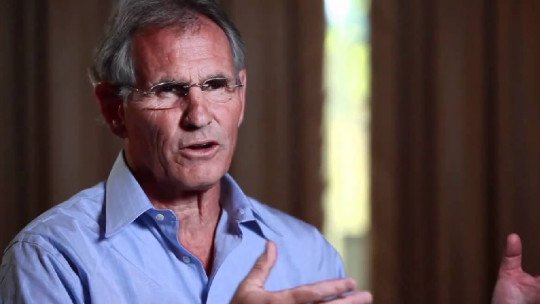Categories: Articles and background information
Different use of words to avoid misunderstandings
Since opening my practice in 2015, I have always wanted to be as open and transparent as possible, says Tijs Breuer. I wanted to address themes that play a role in our personal lives, avoiding taboos and not judging based on my norms and values.
Unfortunately, I am forced to apply censorship to my own website. If I do not do this, my work will be seen as sex work and my practice will be seen in a bad light by certain organizations and authorities.
For example, on August 14, 2023, I received an email from Mollie, my Payment Service Provider: “We regret to inform you that we can no longer offer our payment services to your organization. We will close your Mollie account on October 13, 10. Unfortunately, during our periodic audit we have determined that we can no longer offer our payment services to your organization because your services fall outside our policy.” When pressed about the reason for this decision, they indicate that they cannot explain the specific reason. However, reference is made to a page that states: “We do not accept products and services that pose or could pose an unacceptable risk to Mollie's reputation.” In addition to prostitution, escort services and sex events, the list also mentions weapons, ammunition, narcotics, drugs and stolen products. I pointed out one more to them web page, in which I explain that tantra is not sex work, but they indicate that their decision remains the same.
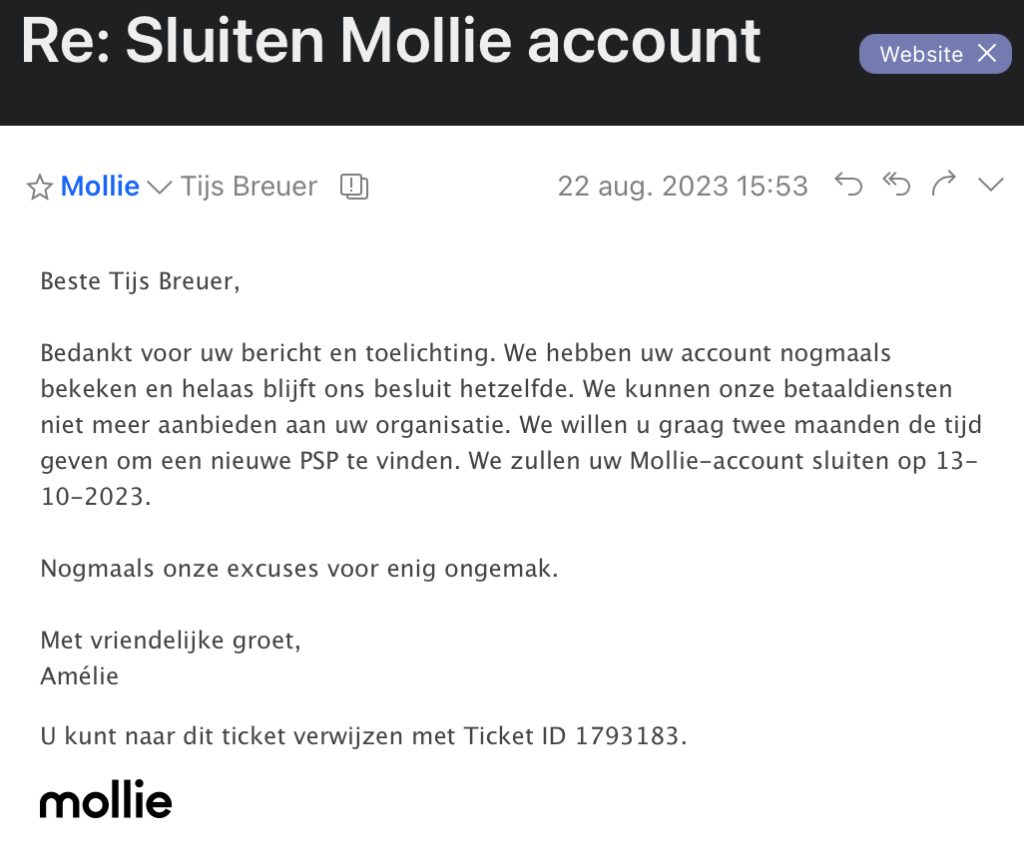
Fortunately, my application with another Payment Service Provider – Stripe – was quickly accepted. But to prevent them from also searching the transcripts for terms such as "tantra" or "sacred intimacy", I have adjusted all terms as a precaution. I have also now screened my entire website and all other expressions for terms such as “tantra”, “sexuality” and “intimacy”. Instead, I now write about breath and energy work, sensuality and closeness.
Also in August 2023, I received an email from Marktplaats, more than a month after publication of my advertisement entitled “Professional deep tissue and relaxation massages”. Text of the advertisement: “Tijs Breuer from Neptunus Well-being offers various professional massages, from sports massage to deep tissue, from Swedish relaxation massage to Californian Esalen massage, from tantra to body work.”
The email from Marktplaats explains why my advertisement has been removed: “To keep the use of Marktplaats as simple and pleasant as possible, we have drawn up rules. This way we can keep the site as clean as possible. We have received a message that your advertisement does not meet our general terms and conditions. For that reason we have removed your advertisement.” Upon inquiry it appears that the word Tantra is associated with eroticism and is therefore not permitted.

Tantra has come into a bad light since #MeToo. Since its inception Tantra Abuse Reporting Center In October 2017, one hundred reports were received of inappropriate behavior by about sixty masseurs. This concerns serious inappropriate behavior, including 27 cases of rape. Several tantra masseurs were arrested by the police. Although tantra is becoming increasingly known among the general public and the sector has been professionalized with, among other things, the establishment of Tantrawijzer, tantra still retains a negative reputation.

So if you are wondering why it is no longer possible to book a tantra massage via my website, I can reassure you. I still give energetic massages. And you can still come to me for breathing and energy work. Old wine in new bags.
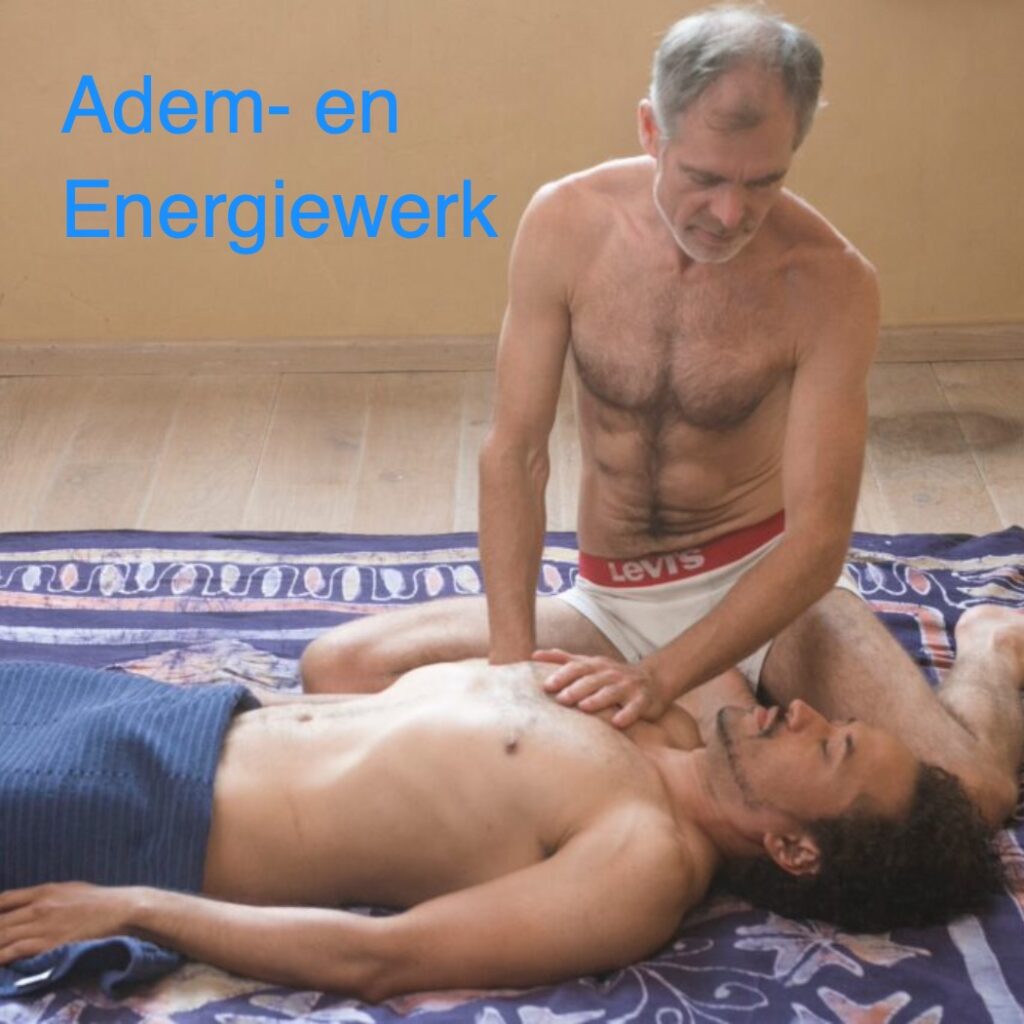
Protected: Tantra Guide – Statements and Answers
Meditate together in a Sangha
A Sangha is a circle of (online) friends who practice the Dharma together to create and maintain consciousness. The essence of a Sangha is awareness, understanding, acceptance, harmony and love. The tradition of Sanghas comes from Buddhist communities of monks and their followers.
Together you can focus on different forms of consciousness expansion. For example, there are Sanghas that focus on sharing experiences in the form of a heart circle of sharingcircle, in this way you reinforce each other's growth process. There are also Sanghas aimed at creating moments of silence, or to practice specific meditations such as breathing meditation with each other. Personally, I highly value Sangha's aimed at strengthening self-love, self-touch and mindful masturbation, because in a small, safe group you can get to know each other and inspire each other.
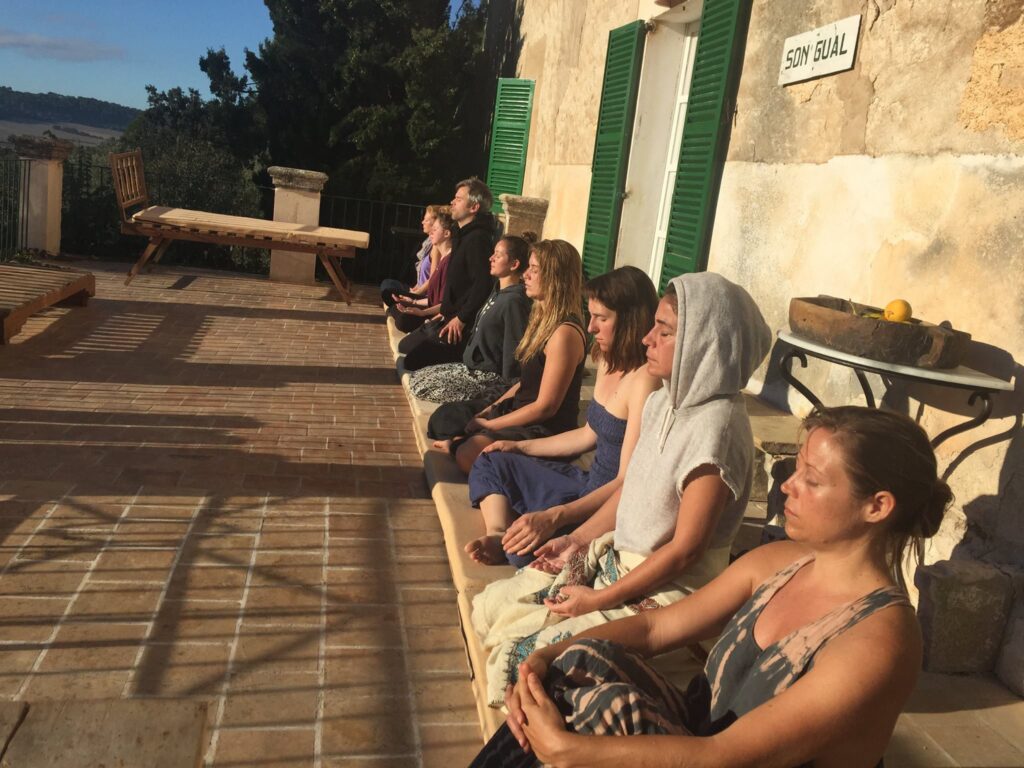
Why establish a Sangha?
It is not so easy to create a routine of regular meditation on your own without the help or support of others. A Sangha is therefore the best way To practice meditation regularly, participating in a Sangha can be extremely helpful. Such a group offers you deep support and wisdom. This applies to both beginners and experienced practitioners.
How do I start a Sangha?
It is best to start small, with a minimum of four practitioners. Agree with each other that you help each other to create a routine of meditation or other forms of personal development and awareness expansion. Schedule fixed moments when you can meet each other (online), so that in addition to your individual practice, you can also practice together and inspire each other. You will find that as the group gets to know each other and become more familiar with each other, there is an energy of a community in which understanding and compassion is present for each other.
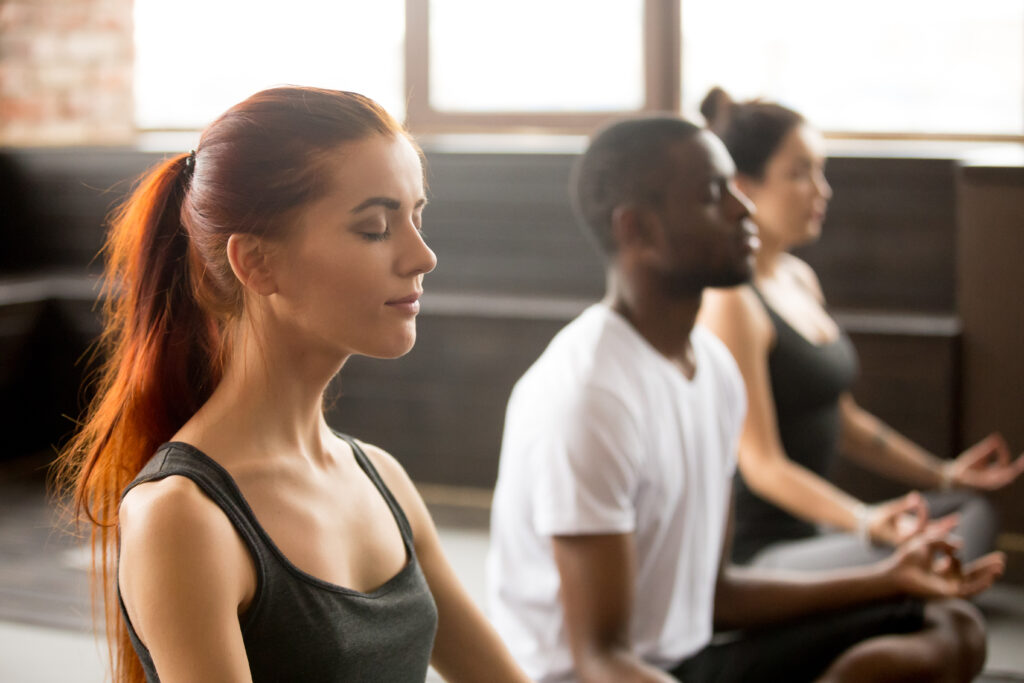
Thich Nhat Hanh on the Sangha
Thich Nhat Hanh explains that sangha is more than a community, it is a deep spiritual practice.
We need a sangha. In my tradition, we learn that as individuals there is not much we can do. Therefore, taking refuge in the Sangha, taking refuge in the community, is a very strong and important practice. When I say, "I seek refuge in the Sangha," it does not mean that I want to express my devotion. No. It's not a matter of dedication; it's a matter of practice. Without being in a Sangha, without being supported by a group of friends motivated by the same ideal and practice, we cannot get very far.
If we don't have a supportive Sangha, we may not get the support we need for our practice, which we need to nurture our bodhichitta (the strong desire to cultivate love and understanding in ourselves). Sometimes we call it 'beginner spirit'. The mind of a beginner is always very beautiful, very strong. In a good and healthy Sangha there is encouragement to the mind of our novice, to our bodhichitta. So the Sangha is the ground and we are the seed. However beautiful and potent our seed is, if the soil does not give us vitality, our seed will die.
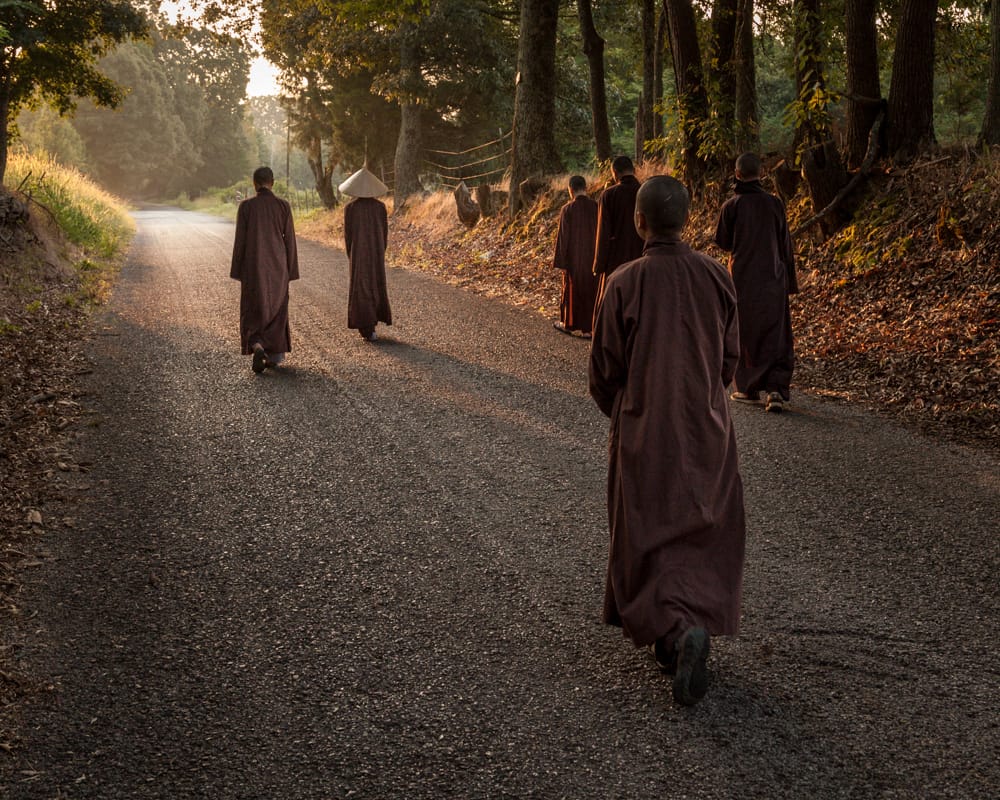
How can a Sangha help us?
Gathering with like-minded people offers a wonderful opportunity to infuse the collective energy of the Sangha into our bodies and consciousness. We benefit a lot from that collective energy. We can entrust ourselves to the Sangha because by practicing meditations together, you become familiar with each other. A collective energy of connectedness and awareness is created. We can of course rely on the power of mindfulness, where you increase your own energy and awareness through personal practice. But sometimes that is not enough, sometimes it is difficult to come back to yourself without outside support. In those moments it is nice to know that the Sangha can support you. If you know how to use that energy of mindfulness to receive the collective energy of the Sangha, you will have a powerful source of energy for your transformation and healing.
Do you want help in establishing and developing your Sangha?
Tijs Breuer guides individuals and groups in setting up a Sangha, by bringing people together, by guiding meditations, sharing circles, self-love and tantra exercises and other forms of consciousness enhancement. He does this on the basis of donations, donations and voluntary contributions (daña).
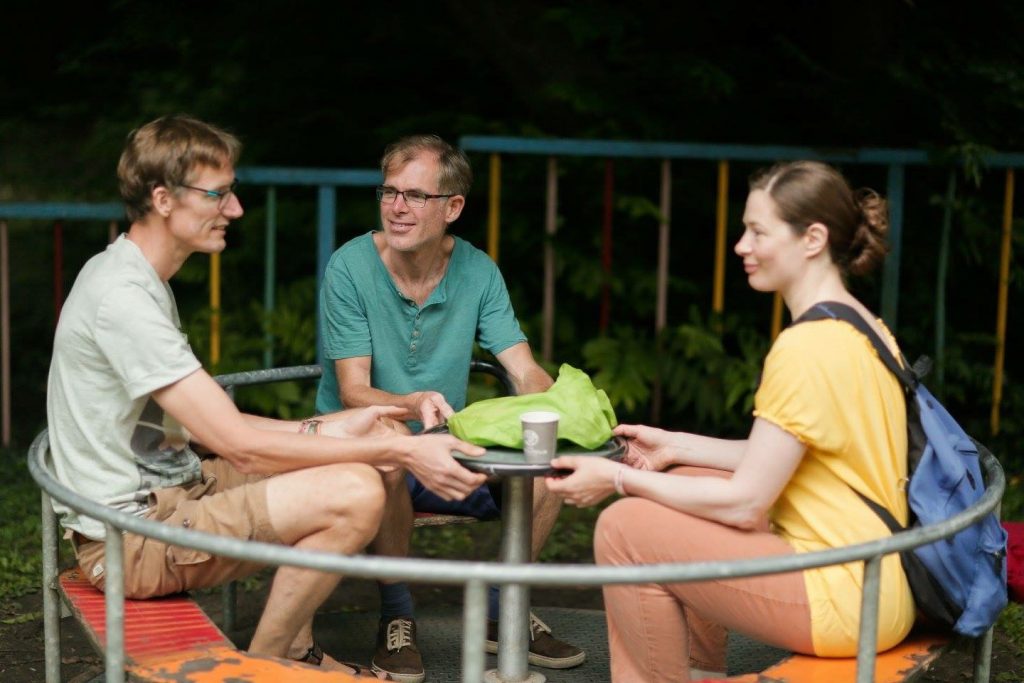
Guided meditation recordings
Op this page you will find recordings of guided meditations, which you can use whenever you want to meditate, alone or in a group.
Solidarity for Ukraine
It is war in Europe. I remember the overwhelming nature and the open-hearted hospitality during my travels to Ukraine. It is horrifying to see our neighbors in Ukraine surrounded by bombs, machine guns and grenades and forced to flee. The future is uncertain. Let's each, within our own ability, see what we can do. Every support, every gesture can be a valuable contribution.
Refugees, students and people with a minimum income receive a 20% discount on the regular rates at Tijs Breuer. In the period from March to July 2022, I temporarily gave free treatments to refugees from Ukraine and Russia.
World Peace Meditation
Every second Sunday evening of the month at 20:00 I organize a meditation for peace. World Peace Meditations have been organized since 1986 (eg by John Randolph Price), with the aim of finding peace in ourselves, our environment and the world worldwide. Do you want to participate, at home or via Zoom? Then sign up via Meetup or send me a message on +31626174884.
Shelter
From March to June 2022, I temporarily housed Oleksiy, a Ukrainian friend I've known for 20 years. I thank my neighbors and others involved for all loving gestures and gifts (such as shaving soap, fruit, welcome cards, pocket money).
Poem by Max Rosochinsky
(from the poetry collection Words of War)
No poem in forty days
Poetry went to the grave
When on November 23
Andriy Yurga, a fighter of the “OUN” battalion
Killed in battle at Pisky
He was from Lviv, nicknamed “Davyd”.
Poetry turned black
Worn mourning clothes for forty days
Then it was covered with earth
then with as
Forty days of poetry was in the trenches
Clenches his teeth and shoots back in silence
Poetry wouldn't talk to anyone
What's there to talk about?
Dead?
In those forty days many people died in poetry.
Poetry saw trees die.
The ones who ran through the minefields of a trap And never made it through winter. Poetry saw animals die.
Injured cats and dogs
Dragging their spilled guts through the streets
Like this is something normal
Poetry did not know what to do:
Have pity and help them die, or
Have pity and let them live.
Mindfulness helps with depression and tension.
Learning to live mindfully is a central theme in the essence coaching en pensions with Tijs Breuer. Last year he helped many people to deal with the unrest, gloom and loneliness. Evidence is growing that mindfulness helps to prevent such depressive feelings and to counteract relapse after treatment of depression. Recent research by Marleen ter Avest shows that especially young people benefit from this.
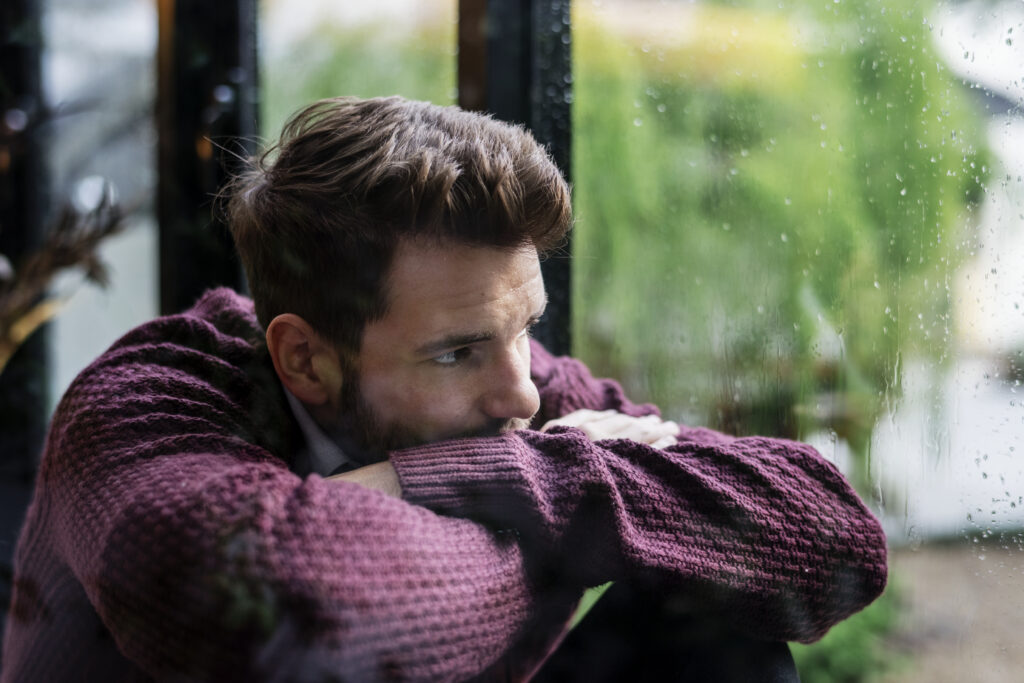
Right now, almost half of young people between the ages of 16 and 24 are struggling with increasing psychological problems, such as tension and feelings of depression. According to the CBS More than a quarter of people suffer from loneliness, fear, gloom and stress more often during the corona crisis. The mental health of young adults (18 to 25 years) is lowest (see graph).
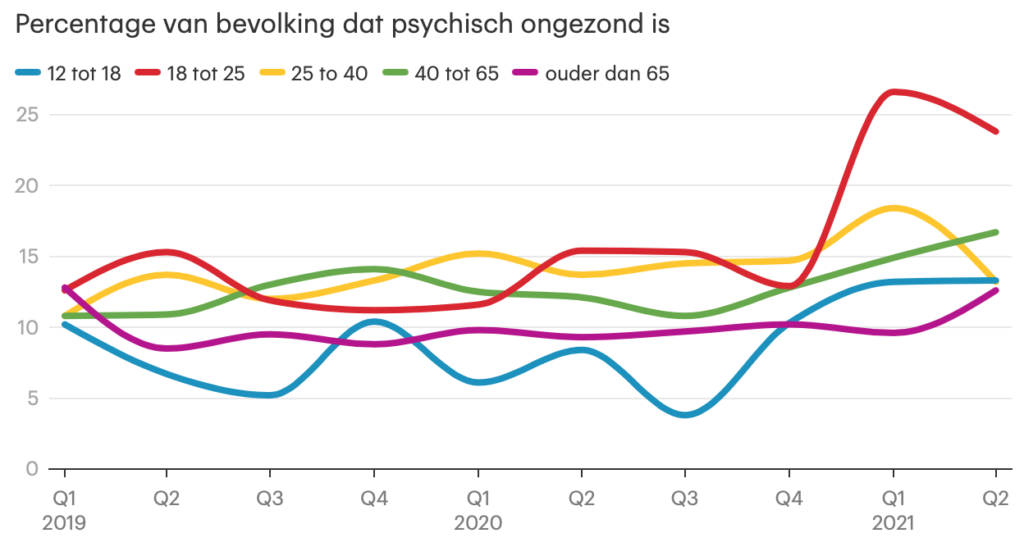
That's how I read NRC: Our daughter (20) stopped her studies last year, partly due to the restrictive corona measures and came to live at home again. She has taken a major mental blow…. The unpredictability and uncertainty paralyze her. Susan Bögels (professor, UvA) advises in this article: Teach her to accept what cannot (now) be changed, and get started with the options that are still there. There will always be ups and downs in life, let's also see the corona measures in that regard. In short, teach her the basics of mindfulness.
In 1979, the American molecular biologist Jon Kabat-Zinn laid the foundation for mindfulness with Mindfulness-Based Stress Reduction (MBSR), intended for people with chronic pain and stress. He taught them to live in the here-and-now, and in accepting the situation as it is. Watch an interview with him here.
Is there scientific evidence for the effectiveness of Mindfulness?
Melanie Schellekens, PhD candidate at the Radboud Center for Mindfulness, put all scientific facts at a glance on the application of Mindfulness. She was annoyed by a popular science article, which stated that there does not seem to be a problem today that cannot be brushed away by sitting on a cushion regularly.
“With mindfulness you cannot 'meditate away' something, according to Schellekens. “If only it were that simple! When you practice mindfulness, you are present with the experiences in the moment with friendly open attention. Whatever that experience is. In this way you can gain more insight into your thoughts, feelings and automatic reactions. If you can learn to recognize that suffering is part of life and that you can feel what you feel, it can ease the pain.”
Of course there are many roads to Rome. “It is good that there are different treatments and they complement each other, says Professor of Psychiatry Anne Speckens. “One wants pills, the other prefers to talk. Mindfulness focuses more on experience.”
Some facts at a glance
- Mindfulness is effective for anxiety, depression and pain. From a big meta-analysis of 47 studies show that mindfulness is a treatment with a moderate effect.
- You can learn to meditate. A comparison of 20 studies shows that the effectiveness is mainly due to the teaching of mindfulness skills (in addition to cognitive and emotional reactivity, rumination and worrying).
- Mindfulness changes your brain. More gray matter or more alpha waves in parts of the brain means it function better of that part of your brain. Out 21 neuroimaging studies It turns out that eight areas of the brain are consistently altered in meditators, such as your meta-consciousness, your external and internal body awareness, and your self and emotion regulation.
- In a recent article in JAMA Psychiatry, it is shown that mindfulness training is a fully-fledged alternative to long-term use of antidepressants, to prevent recurrent depression. Even if people consider tapering the medication.
Who benefits most from mindfulness?
Psychologist and mindfulness researcher Marleen ter Avest obtained her doctorate at Radboud University Nijmegen at the end of September 2021 on the application of two mindfulness-based therapies in people with recurrent depression.
Ter Avest established that especially people who experience their first depression at a relatively young age – around 30 – and who experience an above-average amount of rumination, can benefit from mindfulness as relapse prevention. Rumination literally means to chew the cud: to keep repeating unwanted thoughts. “Rumination is often accompanied by thoughts such as: if only I had done this or said that. That is not constructive at all.”
During the recent article in NRC she says: “Mindfulness is about awareness of feelings, thoughts, and the body, and the interaction between the three. You increase awareness without having to act on it immediately. If you have bad thoughts, for example, it makes perfect sense to want to do something about it. But sometimes that just adds to the unrest. With mindfulness you notice them, and you can also let them go. You shift the focus from doing to being.”
“The power of mindfulness in depression lies in the fact that people learn to focus on their breathing and their bodies, says Willem Kuyken, professor of psychology at the University of Oxford and director of the Oxford Mindfulness Centre. “It helps to look at feelings from a distance, and to see that thoughts are not fixed facts. Mindfulness will not have a positive effect on every mental illness. There is strong evidence for depression and chronic pain. But there is promising research for burnout, and that's all.”
Also, learning mindfulness in a group does not work for everyone. Maya Schroevers, health psychologist at the University Medical Center Groningen often advises individual counseling. “Especially in people who have a physical chronic illness, they sometimes lack the energy to hear the stories of others between exercises.”
Tears during a treatment
To me, a tear is one of the greatest gifts I receive from my clients. The tear shows me that there is confidence to show something of yourself. Yet many people are shocked or try to suppress tears for as long as possible. I wrote this piece to take away the hesitation and as an invitation to let tears flow and not hold back.
Why do tears often come to my eyes during the treatment?
Many people dread a more intimate massage, in-depth treatment or body work because they fear the tears that may come. A tidal wave of tears can be confusing, because you enjoy the massage and yet sorrow suddenly emerges. "I'm not a crybaby," you say to yourself. But by doing so you are depriving yourself and perhaps you let yourself be guided too much by (old) social views.
Is crying during a session healthy?
New insights show that crying is very healthy. And that a tear indicates the release of old tensions in your body and mind. The limbic system in our brain controls our emotions, responses to stimuli, behavior and memories. "When the nerve endings in our tissues are stimulated, it is not uncommon for this to release stuck emotional memories, even when you may not feel a sense of trauma or sadness," said Amy Olthoff, director of Spa Nalai in New York.
Is it normal for me to cry every time I get a massage?
You can rest assured that you will not be the first person to cry on the table, nor will you be the last. This is a very normal reaction, especially if you are occasionally stressed, tense or have been through difficult moments. The relaxation space in your body and mind ensures that there is a release of recorded feelings, whether this is sadness, anger or excitement. That pent-up emotion often lets go in the form of tears.
Being vulnerable is quite scary, especially in an unfamiliar environment and with a therapist you may not have met before. But although it can be quite intense to get to your feelings, it can be a very healing experience, after which you feel a lot lighter.
What can help me with this?
Whether you are coming for a massage, body work, or another treatment, it is a good idea to share a bit about how you are, your emotional state, and your concerns before starting the treatment. This ensures that as a practitioner I can be with you with more empathy and full attention and that I have the right attitude to help you the best. This can be in the form of a non-judgmental touch and attitude during your vulnerable moments. Sometimes you feel a bit confused after a treatment. This is because your thoughts and feelings are rearranged, which ultimately leads to greater clarity of mind.
What do you do when someone has tears?
Many therapists offer a tissue and then leave the client alone for a while. I myself stay with you and I keep eye contact. In this way I can empathize with what you feel, because “shared sorrow is half sorrow”.
Words are not always needed, they often come later. Instead of asking questions, I often look around and in the tears to see what small or large patterns the tears want to reveal. Because not all tears are the same. The human body produces three types: basal tears, which form an oily layer over the eyeball to keep it from drying out; reflexes, which appear when an eye is irritated by, for example, dust particles or the juice of a sliced onion; and psychogenic, which are rejected for emotional reasons. Because emotional tears have a higher protein content, they are thicker and roll down your cheek more slowly.
Why do we often have to cry and laugh at the same time, but can't we cry and sing at the same time?
In the recently translated “The Book of Tears” by Heather Christle attention is paid to this. The book is a must, because even if no unambiguous answers are given, plenty of space is given to the beauty of tears. Heather also explains that it is nearly impossible to sing and cry at the same time. "The throat muscles cannot simultaneously obey the command to form notes and the command to hold themselves open to maximize oxygen uptake, a command that unconsciously triggers crying." That's why Heather Chrisle comes to the conclusion that the opposite of crying isn't laughter, it's singing. "Both extremes are valuable moments, when you need to sing and the moments when your voice breaks and a tear appears."
Sometimes there are no words for it
One of Heather Chrisle's valuable insights is that crying marks a limit: Crying occurs when people have reached the limit of what can be said in words and what they can control themselves. This does not mean that their words up to that point are necessarily good or true or can be trusted. But it does mean that a “breaking point” has been reached. It means it is time to pay attention to the systems and feelings the tears refer to.
Burnout symptoms and loneliness often go together.
What do burnout and loneliness have to do with each other?
With many people who suffer from burnout symptoms, I see that they also feel very alone and lonely. If you are facing a burnout, you will indeed experience little warmth, love and cosiness. You feel trapped in your own world.
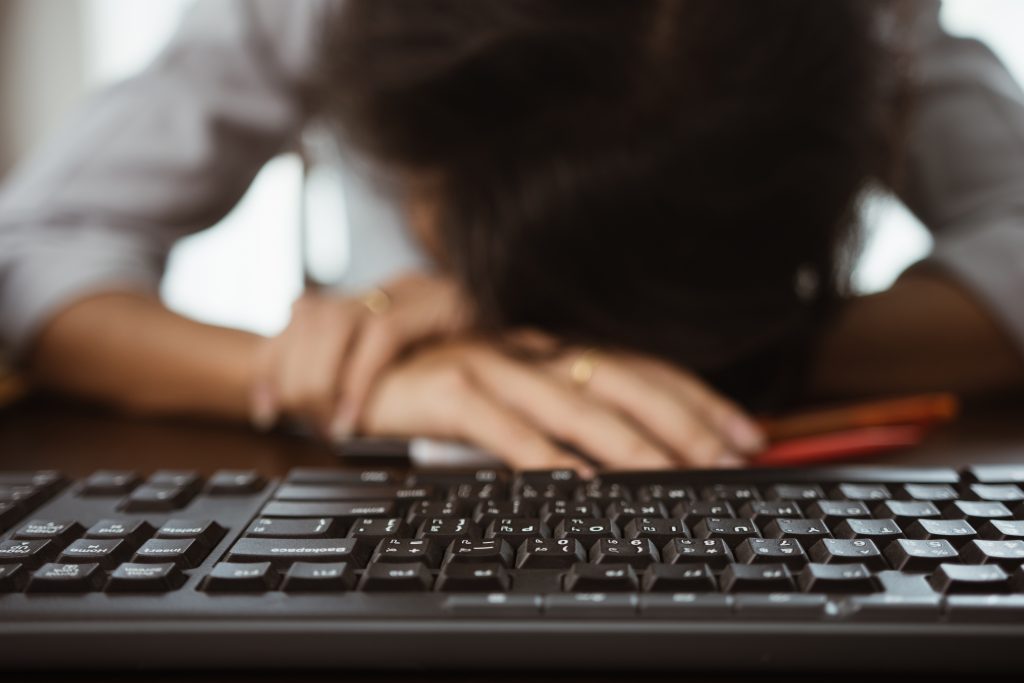
The worse the burnout, the more severe the physical symptoms, so that you can literally feel physically cold. If you are single or very committed to your job, you probably have little physical contact. Certainly at a time when the corona virus is forcing us to stand together more, this can worsen. Little touch and emotional / social distance can eventually break you up, because loving attention and physical touch are essential to our well-being.
Do you feel like the ground has been washed away from under your feet? Then it is time to create peace and security. Let go of all social obligations, you are now in first place yourself.
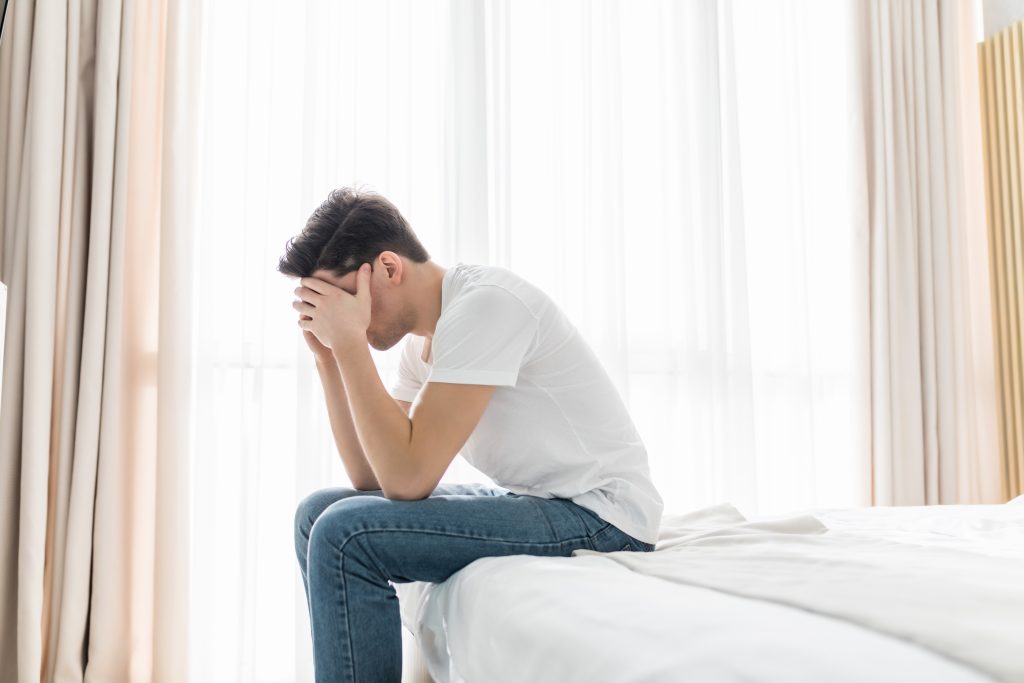
Why is it good to withdraw?
Burnout symptoms are signs that you have let yourself down recently. Working too hard and running over yourself is not very loving to yourself. Instead of taking good care of yourself and listening to your body, you have started living a goal and result-oriented life. It was important to conform to the opinions, judgments and standards of your environment and your own beliefs about what others expect of you.
When you are cold and feel alone, there is a tendency to seek out company. Do not do that. To make sure you give all your attention to yourself and not to others, it is good to withdraw from your social networks. Much of your social circle has appreciated you for your unbridled commitment. They will not understand why you are so passive now. Or they come up with all kinds of advice to pick up the thread again. Many cannot deal with your cocoon, which is necessary for the transformation into your new me. Others are shocked or want to help you, but also expect something in return. You are no longer the same as before, which is difficult for many to understand. You will therefore run into walls of incomprehension. Some people see you as weak or condemn your passivity.
Feeling lonely is not pleasant, but it is clear. You now know exactly who you may or may not benefit from. The fact that you feel alone is in itself nothing wrong with that. That is exactly what it takes to experience emptiness. Because only in silence can you hear yourself.
So make sure that as few people as possible come to talk to you. No matter how well-meaning their efforts to get you up and running, it doesn't help. It is better to provide as few disruptive stimuli as possible. So that you can listen in and feel all the feelings that may be felt in your inner world.
There may be one or two people who can support you, even if you can't give them back now. A dear friend, neighbor or family member who doesn't feel sorry for you, but who can listen or be with you in silence. Who can see you in your unique beauty for who you are, not for what you have achieved. They genuinely want the best for you and don't need anything from you. Dare to ask them for a hug or a listening ear.
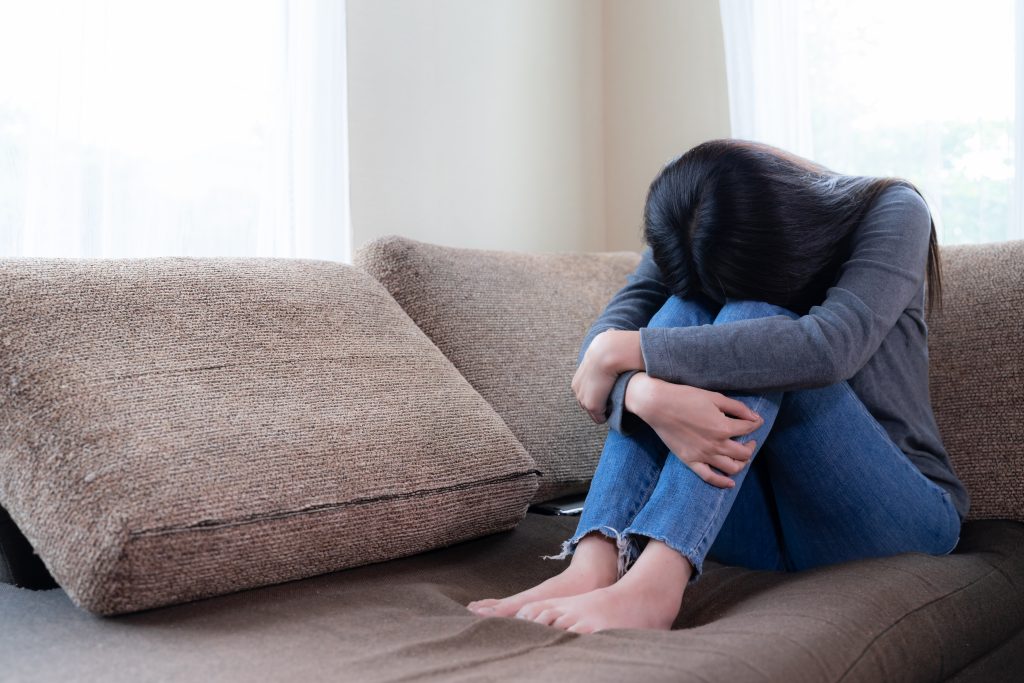
What do I do when I'm alone?
Don't do anything. First, take a rest and retreat. Lie in the fetal position on the bed regularly, until you notice that your heart rate is slowing down and you feel a drop. The worse the burnout symptoms, and the more you get through it, the more sleep you need. If you have been sleeping badly for a longer time, do meditation exercises that are aimed at falling asleep. You may feel that you are on the edge of the abyss. You want to cling to something, but that is no longer possible. The only thing to do is to let you fall into the abyss. Let go of everything. The only thing that helps now is pause. So that you stand still and can surrender yourself to the void. In the silence with yourself, answers and insights will come again, which can lead you to your new self.
How can I make me feel warm and enveloped in love again?
That seclusion can feel very cold and chilly. Without self-love you are not going to get warm. So it's time to really take care of yourself, like you would take care of your loved one or your child. The way back requires you to learn to listen to your body, follow your heart and stand for yourself. The way you put your arms around someone dear to you, you can say to yourself that you are good just the way you are, that everything is good and safe and that nothing is necessary. Just touch yourself lovingly. That may seem unnatural, but it can really change how you experience yourself.
A loving physical touch is very important in your burnout recovery. If you can't find this in a relationship or friendship, don't be shy about going to a professional body-centered therapist or masseur for that much-needed touch. A hug, massage or other form of touch brings you back into contact with your body. Moreover, touch ensures the production of hormones that make you relax and feel good.
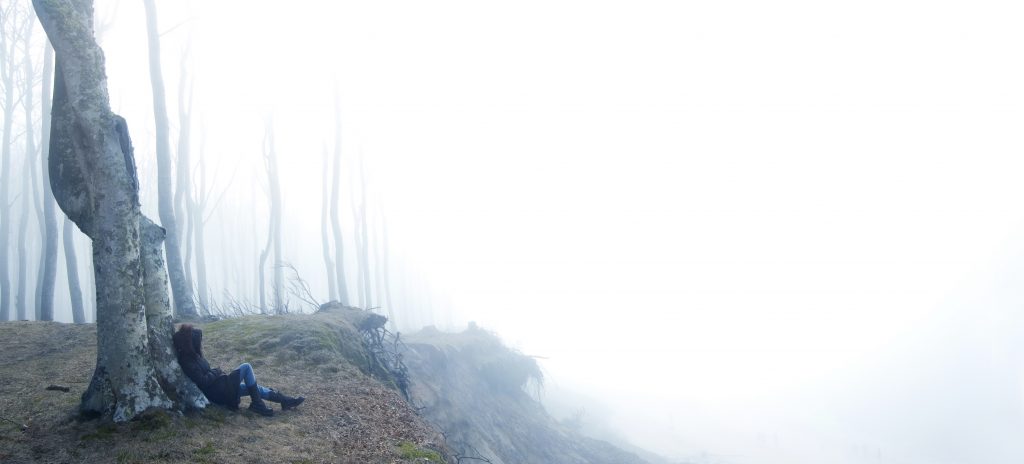
To continue, you first have to go through a deep valley. Burnout coaching can help you to climb down into the deep valley. Then you will find your way up again under your own power, via unexpected small winding paths.
Summer 2020 Newsletter
June 6, 2020
| Touch and proximity are no longer so obvious. Our world has changed permanently. We are more at home, take more time for everything and we do not get close to each other that quickly. That still takes some getting used to. Some enjoy the peace and quality time with the family, others feel isolated or depressed. The call “care for each other” therefore still remains valuable. My work has shifted more towards coaching and guidance of your process. Now that it can be touched again, it combines well with bodywork. Since May 11, my practice is also open again for massages, of course with all safety precautions. So you can come again for eg relaxation massage or a deep tissue massage. Feel free to come and soothe your skin hunger or experience a deep relaxation. The nice weather makes it quite pleasant at home. We can fully enjoy the summer that is coming again. Do you not feel like going on vacation far away? One or more retreat days for yourself or together with your partner is a nice and affordable alternative. |
  |
| Change booking module If you make an appointment now, the booking module will look slightly different. Have you made a reservation before? Then do not enter all your data again, but choose “Sign in”. You now have your own client profile and you can log in with your own e-mail address. You do have to create your own password once. How do I create a password? After you have selected the location, treatment, time and possibly. extras, click at “Sign in” on “Remind Password”. You will then receive an email with a link, with which you can create a password. |
  |
  |
| How do I recover? Social isolation increases the risk of health problems such as heart disease, dementia and stress. It increases your cortisol levels and lowers your immunity. Sitting on each other's lips for a long time can also cause stress, which is why many couples are looking for it right now relationship coaching. The loss of loved ones or the ending of a relationship can also - sometimes unexpectedly - cause you to end up in a grieving process. Some people experience a high workload, with the risk of burnout as a result. All reasons to take good care of yourself, to take yourself seriously and to listen to signals from your body. Do you need a sparring partner or a helping hand? Then consider hiking coaching or a combination of coaching and bodywork (eg EIA session). With the offer below you can now extend your appointment for free by half an hour. |
 Gift for my birthday. I will turn 10 on June 2020, 49. To celebrate that, as a subscriber to my newsletter you will receive an extra half an hour with your next booking next month (until 10 July 2020). How do I book an extra half hour with a € 32 discount? Choose a location and treatment. Then select half an hour extra time. After you have logged in, you can enter the promo code (see newsletter). After that, € 32 is automatically deducted from the total amount. |
| Meetups have started again During the “intelligent lock-down” the men's workshops of “MeninTouchNL"And the mixed meditations and other gatherings of"EmbodiedWent online. Since June 1, 2020 we can physically meet again. A number of restrictions do apply: You declare that you are healthy. We work with (occasional) couples. The usual hygiene rules apply. And we keep a distance of 1,5 meters. Are we getting closer? Then we wear a mouth mask. On-site and online Are you unable to travel, are you in quarantine or is the meetup already full? If you wish, you can now also participate in all meditation, massage and tantra meetups online, alone or with your own buddy from your living room. Of course, everyone's privacy is guaranteed, so only I come online, the other participants don't. |
 Experiences on AirBNB After many years of renting out holiday homes, I will soon be back at AirBNB, not for rental, but now for "experiences", such as a mindful walk and picnic in the marshes of Tienhoven. Profile on AirBNB Meditations on InsightTimer The most popular app for guided meditations and meditation music is InsightTimer. Recently you will also find Dutch meditations from me. Follow me via the link below and listen to my voice to create a moment of rest for yourself. Follow Tijs on InsightTimer |
| Gift Voucher Do you want to make a friend, colleague or loved one happy with a special gift? You can now easily use the booking site purchase a gift certificate. Choose from the amounts of € 65, € 83 or € 115. You immediately receive a € 10 to € 15 discount, because you pay: € 55, € 70 or € 100 for the voucher. |
Ready for 1,5 meters of society
Update Coronavirus COVID-19, May 6, 2020
Good news! From May 11, massages will be given again in the practice of Tijs Breuer. From that date, the practice of contact professions, masseurs, para-medical professions and alternative medicine is permitted in the Netherlands. Where possible, the work is organized at a distance of one and a half meters. We work by appointment, where we discuss beforehand whether the visit poses a risk.
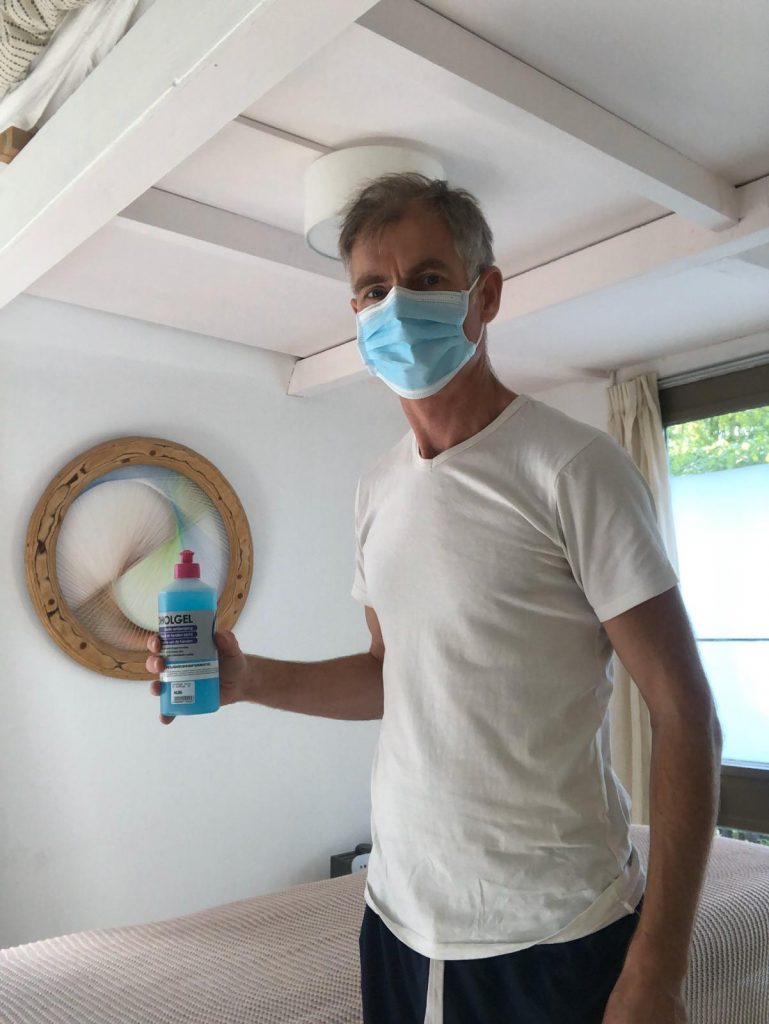
In order to be able to do the work safely and responsibly, Neptunus Wellbeing applies in practice on 1 May 2020 new policy. This already applies to coaching and other treatments without touch. From May 11, 2020, this policy also applies to massages and bodywork. Measures include careful intake and information to clients, good personal hygiene and disinfection of the room. All kinds of precautions had already been taken. The RIVM guidelines were always used as a starting point.
Now that there are also sufficient personal protective equipment available, the practice is fully equipped for the 1,5 meter society. Of course, work will only be done if both I and you have no complaints of a cold, cough or fever. Through NGS (trade association for sports and wellness masseurs) a protocol has been drawn up to work safely. It new policy in practice Neptunus Wellbeing is based on this.
I would like to ask you to observe my new house rules when you come for treatment (see below). Read more about it new policy and all precautions.
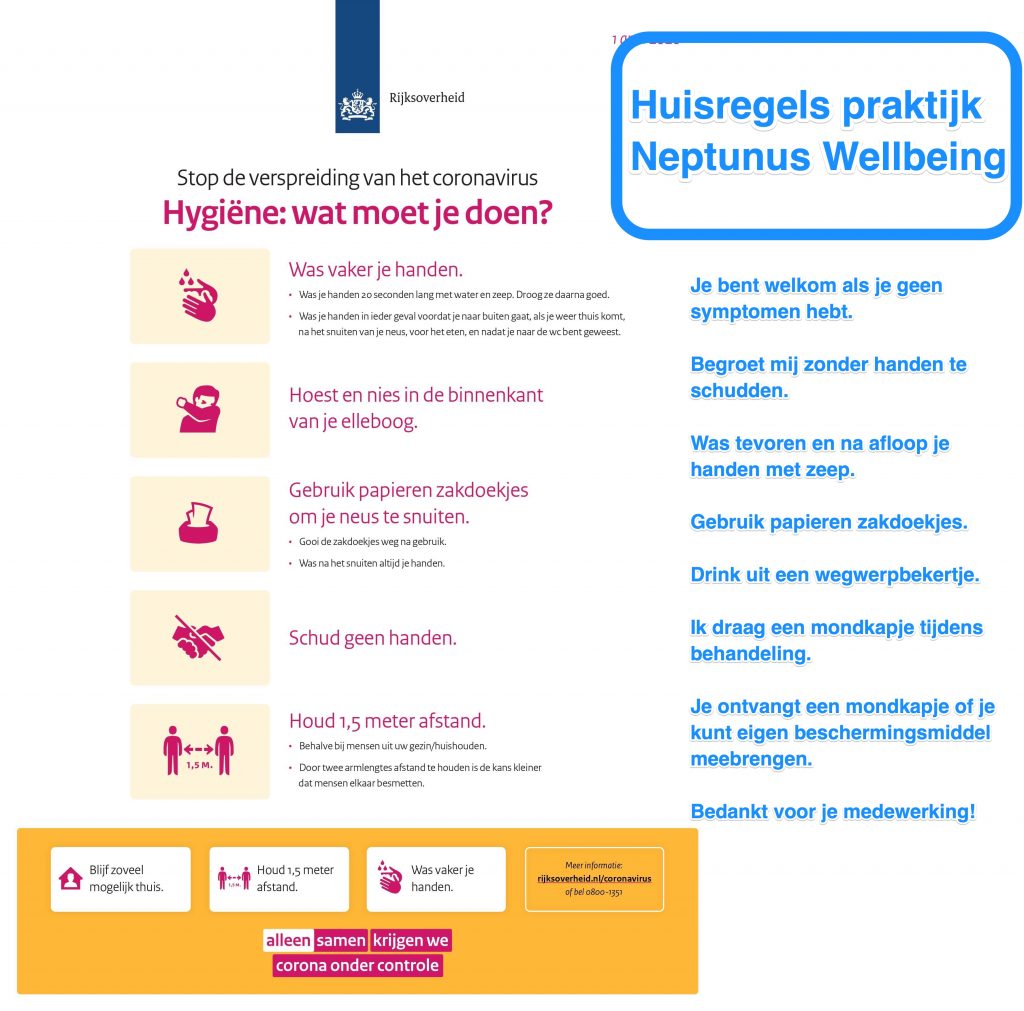
What are protocols?
Around the general rules of RIVM translate to the realities of companies, there are protocols drawn up. That requires customization: how do you keep a treatment safe if you cannot maintain a distance of 1,5 meters for a while? Separate protocols are drawn up for each industry by industry and professional associations. Such a protocol is an advice, including tips for the organization of the work and the care for the client and the care provider. Ultimately, each entrepreneur decides, after professional consideration, how these advice can best be applied in a practical situation.
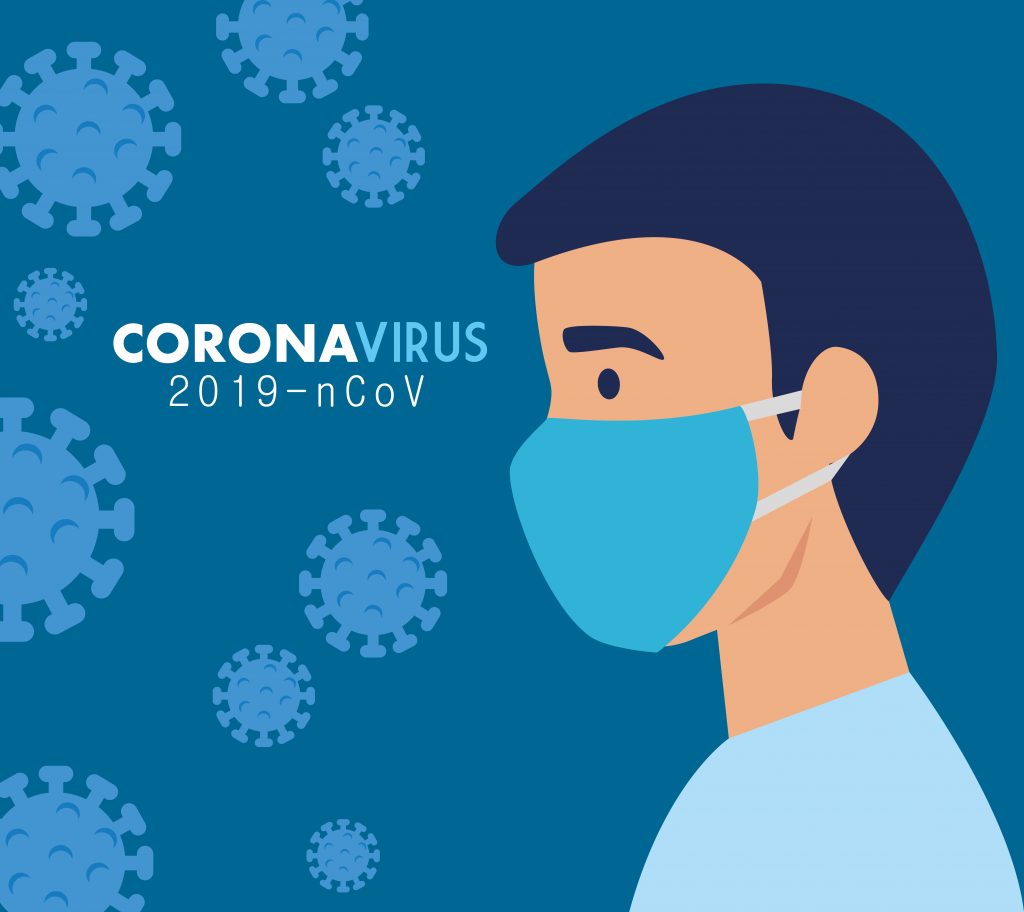
Ordered before paramedical professions a document has been drawn up by the Ministry of Health with conditions for upscaling regular care. The Professional Association KNGF recently came up with one guidance for physiotherapists and a new one hygiene protocol. These documents were approved by the State on April 30.
Since 1 May 2020, physiotherapists are allowed to return to work under certain conditions. From 11 May 2020, masseurs can fully resume their work. That is why a protocol has now also been drawn up for masseurs by NGS (trade association for sports and wellness masseurs).
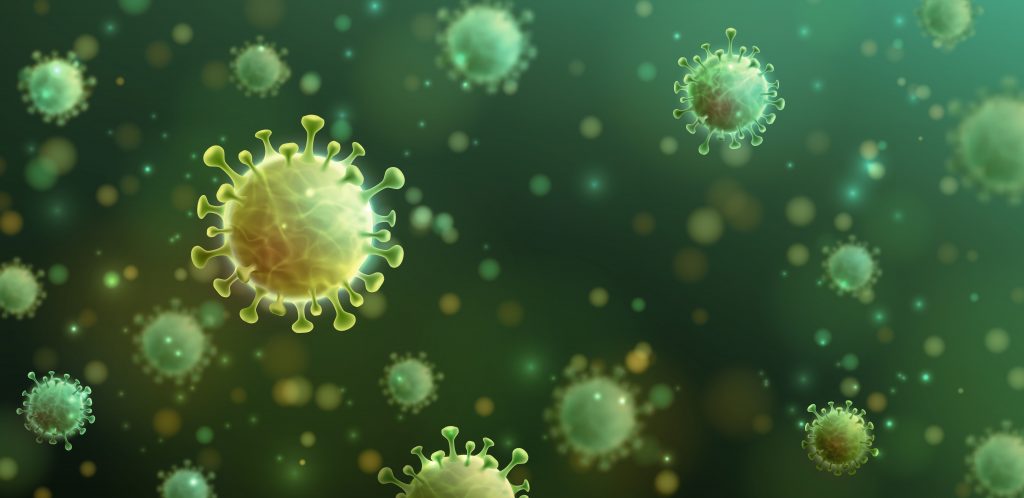
How does it look new policies and precautions out with Neptune Wellbeing?
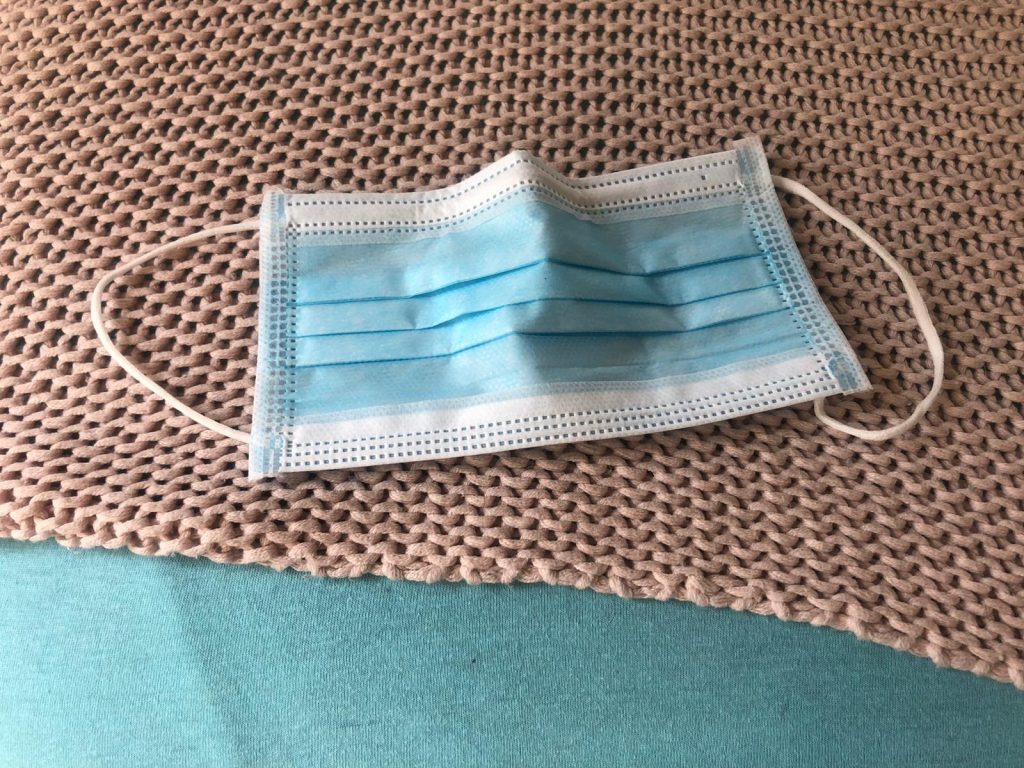
There are precautions for:
- design and hygiene of the practice area
- making an appointment
- communication and information
- procedure entry
- method during the treatment
- after treatment
What is important for you to know?
Be aware that the entrance and the practice area are cleaned and disinfected prior to each treatment. A 30-minute interval is always planned so that sufficient time is available for this. The waiting area cannot be used. The toilet and shower can only be used if it is disinfected before and after. The massage table is provided with a clean cover (washed at 60 degrees), face cover (1 time used) and a clean towel.
Can I (again) make an appointment for a treatment?
All coaching treatments are simply given. And from May 11, 2020 it is again possible to come by for a massage or bodywork. The following questions are asked when making an appointment by email, telephone or via SMS / WhatsApp:
- Are you part of a vulnerable group for COVID-19?
- Have you had one or more of the following complaints in the past 24 hours or at this time: cold, runny nose, sneezing, sore throat, mild cough, shortness of breath, elevation, fever and / or sudden loss of smell or taste?
- Do you currently have a roommate / family member with a fever and / or shortness of breath?
- Have you had the new coronavirus (diagnosed with a lab test) and has it been diagnosed in the past 7 days?
- Do you have a roommate / family member with the new coronavirus and did you have contact with him / her less than 14 days ago while he / she still had complaints?
- Are you quarantined because you have had direct contact with someone who has been diagnosed with the new corona virus?
The answers to these questions determine whether the appointment can go ahead. Are any of these questions answered with “Yes”? Then physical contact is in principle not possible. Are you vulnerable or would you rather not take public transport to the practice? Then wearing a surgical mouth mask is necessary and we can discuss whether I can come to your home for treatment.
Is wearing a mouth mask mandatory?
Due to the pre-check, wearing a mouth mask is not mandatory if all questions are answered with “No” in advance. But everyone is of course free to use it. I myself will use a face mask if our faces are less than a meter apart. And I will offer you a mouth cap, but you can also use a different type of protection.
How does it work when you enter?
- Before the treatment I take an extensive shower. I want to ask you to take a shower at home beforehand.
- Upon entering, there is kept 1,5 meters away and greet each other without shaking hands or hugging.
- At the entrance of the practice you will be informed per poster about the (hygiene) measures.
- You take off your shoes and immediately wash your hands with soap upon entering. You dry your hands with a towel that is then washed or with paper. Even after the treatment, we wash our hands with soap.
- During the intake, coffee, tea or water is drunk from a disposable cup. We keep a distance of 1,5 meters and we are asked again about any complaints / symptoms.
- We then discuss the working method and you give your oral agreement.
What do I need to know in advance about the procedure during the treatment?
- Maybe it takes some getting used to that I wear a mask for massages or other treatments, where our faces are less than a meter apart.
- I also offer you a mask. You can also choose to cover your head with a thin cloth or with a brought scarf.
- I continue working with bare arms and contact with clothing is avoided. When I'm close to you, we talk as little as possible.
I am happy to welcome everyone again in this way. I realize that this policy is quite in demand, also from you. But together we ensure that everyone can be treated in a responsible manner.
